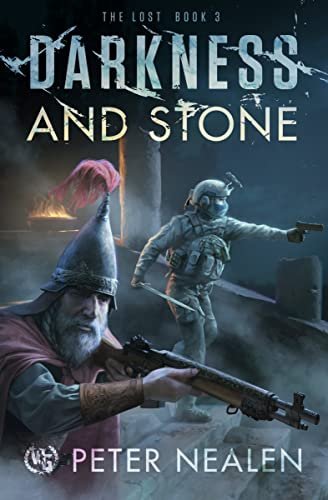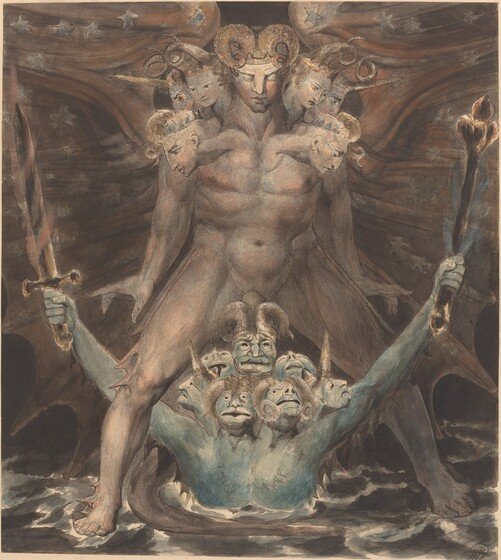Darkness and Stone: The Lost Book 3
Darkness and Stone wraps up Peter Nealen’s WarGate series The Lost nicely. You get a cataclysmic final confrontation, endless chthonic horrors, and the phrase, “you mean you just guilt-tripped him to death?”

Darkness and Stone by Peter Nealen WarGate Books April 15, 2022
One of my favorite things about this series is that Nealen manages to give the impression that as powerful as the modern weapons the and tactics of the Marines are in a world of swords and sorcery, let alone the demigod-like strength of their Tuacha allies, the faith of the meek and humble is greater still. Faith like unto a mustard seed.

The opposite of meek
There is a kind of mythic resonance in this, as meekness is the preeminent virtue of soldiers, even moreso than bravery. So what is meekness?
Here’s the tough part in making sense of it: In your brain when you hear the word “meek”, do you just swap in “weak” and think it means the same thing? And maybe something about “shy as a mouse”, since mice are small and the word “mouse” starts with “m”?
[And maybe you add in something about being a peasant or something, because you think "humble" = "poor". Doesn't work. St. Thomas More was meek. Wealthy, opinionated, but ultimately meek.]
What it really means is “mild of temper” (that’s not me) “long-suffering” (more not) and “patient under injuries” (nope, not that either). And then we think of the Amish, who are famously meek. So we think, oh, okay, meek = pacifist? Maybe sometimes. But a really good soldier is massively meek. How else do you hold up under confusing orders, dangerous conditions, constant hardship, and just do what is asked no matter the personal cost? That’s meek.
Jennifer Fitz
Meekness is something very close to obedience, but exactly where it differs can be seen from the example of St. Thomas More. More was the King’s good servant, but God’s first, even when it cost him his life. More did not dispute the authority of King Henry VIII, but More recognized the limits of that authority when it ceased to follow the true and the good, and insisted that his ultimate allegiance was to something, Someone, far greater than Henry. And at that point, you can see what C. S. Lewis meant when he said, “Courage is not simply one of the virtues but the form of every virtue at the testing point.”
In The Lost, Conor McCall endures the foolish and incompetent leadership of Captain Sorenson, but challenges him when he crosses a line in the first book that should not have been crossed. Would that Captain Sorenson had the humility to be corrected by one of his men. However, it would seem that Providence had everything firmly in hand, and Conor and his fellow Marines would not be diverted from their task.

That Conor does not shirk his duty, even though it ultimately requires him to face a fallen angel frozen in ice, a foe that cannot be defeated by either courage or strength of arms, is a thing of great beauty. It is an act of faith, even though Conor himself is only but dimly aware of it. I feel that Nealen has done justice not only to this, but to the greater heights available to those Sons of Mary who have chosen the better part.
I absolutely love this series, and I would love to see more of its kind in the future. Darkness and Stone is available on Amazon.
The author’s website is https://www.americanpraetorians.com/
My other book reviews | Reading Log
Other Books by Peter Nealen
Ice and Shadows: The Lost Book 1
Shadows and Crows: The Lost Book 2
Other WarGate Books
Forgotten Ruin
Forgotten Ruin Book Review
Hit & Fade: Forgotten Ruin Book 2 Book Review
Violence of Action: Forgotten Ruin Book 3 Book Review
Lay the Hate: Forgotten Ruin Book 4 Review
The Book of Joe: Forgotten Ruin Book 5 Review

Comments ()